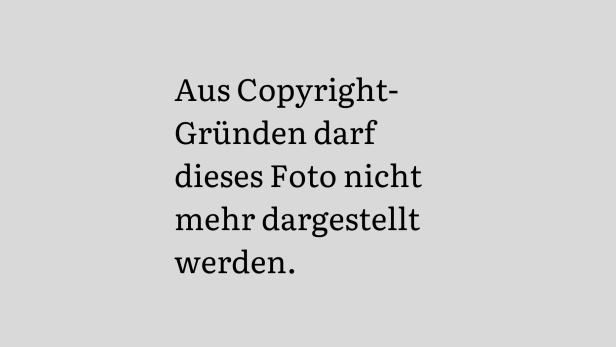Internationale Medien über Van der Bellen
The New York Times:
Alexander Van der Bellen, a 72-year-old economics professor and former Green Party leader, won Austria’s cliffhanger presidential election on Monday, defeating his far-right rival by the slimmest of margins and pledging to unite the divided country. (...)
The result averted the prospect of the first right-wing populist head of state in post-Nazi Europe taking office in a democratic election. Yet the close result illustrated how deeply divided Austria is between left and right, and how thoroughly the centrist elites who have run the country since 1945 have fallen from public grace.
The response to Austria’s knife-edge result shouldn’t be relief – it must be a violent wake-up call
Owen Jones, The Guardian:
The frustrations, insecurities and fears that are fuelling the radical right and the new left aren’t going to go away: they are set to increase. If the new left doesn’t succeed, then Europe’s future will be shaped by the far right. The response to Austria’s knife-edge result shouldn’t be relief – it must be a violent wake-up call.
Frankfurter Allgemeine Zeitung:
Im europäischen Ausland ist vor allem Erleichterung über den Wahlausgang zu vernehmen. Bundespräsident Joachim Gauck hob die proeuropäische Haltung Van der Bellens hervor. An seinen österreichischen Amtskollegen gewandt sagte er: „Sie übernehmen dieses verantwortungsvolle Amt in einer Zeit großer Herausforderungen für Europa. Ich freue mich, dass Sie sich als überzeugter Europäer für eine starke, verlässliche und langfristig auch vertiefte Europäische Union einsetzen wollen.“
Grünen-Fraktionschef Anton Hofreiter gratulierte Van der Bellen mit den Worten: „Der erste grüne Bundespräsident aller Zeiten ist ein Signal der Humanität, der Weltoffenheit und der Vernunft über Hass und Ausgrenzung“, schrieb Hofreiter in einer Pressemitteilung. Die Wahl Van der Bellens zeige: „Wer den Kampf mit den Rechtspopulisten offensiv führt, der kann gewinnen.“
Die Zeit:
In der deutschen Politik wurde der Wahlausgang mit Erleichterung aufgegriffen. Bundespräsident Joachim Gauck nannte Van der Bellen einen "überzeugten Europäer", mit dem an einer "starken, verlässlichen und langfristig auch vertieften Europäische Union" gearbeitet werden könne.
Vor allem die deutschen Grünen feierten den Wahlsieg ihres Parteifreunds. "Wer den Kampf mit den Rechtspopulisten offensiv führt, der kann gewinnen", sagte der Fraktionschef im Bundestag, Anton Hofreiter. Der erste grüne Bundespräsident in Österreich sei ein "Signal der Humanität, der Weltoffenheit und der Vernunft über Hass und Ausgrenzung". Ähnlich äußerte sich Baden-Württembergs Ministerpräsident Winfried Kretschmann.
Austria's presidential election ushered in a profound change in the country's political landscape
Al Jazeera:
Independent candidate Alexander van der Bellen has won Austria's presidential election after far-right leader Norbert Hofer conceded defeat.
The interior minister said on Monday that Alexander Van der Bellen won 50.3 percent of the vote in Sunday's knife-edge election, compared to 49.7 percent for Hofer, presented as the friendly and moderate face of the anti-immigration, populist Freedom Party (FPOe).
BBC:
Mr Van der Bellen, a pro-EU independent backed by the Greens, beat Mr Hofer by just 31,000 votes among the 4.64m cast. (...)
The president-elect vowed to address the "divisions" among Austrians that the poll had "made visible". (...)
The rhetoric in the campaign had been fierce at times. Mr Van der Bellen had said he did not want Austria to be led by a "populist right-wing, pan-Germanic fraternity member" and even urged voters "who don't like me but perhaps like Hofer even less to vote for me".
Mr Hofer had been photographed sporting the German colours of the nationalist Marko-Germania student fraternity, which stands for "the German cultural community" and bears the slogan "Honour, Freedom, Fatherland".
CNN:
Austria's presidential election ushered in a profound change in the country's political landscape, dominated by two centrist parties since the end of World War II.
Left-leaning candidate Alexander Van der Bellen narrowly defeated far-right candidate Norbert Hofer to become Austria's next president, a tightly fought contest decided by mail-in votes.
The win placed Austria at the head of a populist groundswell sweeping Europe amid rising frustration over the European Union's failure to deal with the ongoing economic and migrant crises.
The victory held off Hofer, of Austria's Freedom Party, from becoming the European Union's first far-right head of state.
The campaign attracted intense interest across Europe
Politico:
With Austria at the center of the refugee crisis, the campaign attracted intense interest across Europe. The country has taken in more refugees per capita than most other EU members and the politics of immigration as well as the role of Islam featured prominently in the campaign.
Hofer, who dominated the first round, winning 35 percent in a crowded field, had appeared poised to win the run-off as well, a result that would have made him Europe’s first right-wing head of state.
Fearing that outcome, a broad coalition coalesced behind Van der Bellen, producing a photo finish in one of the most dramatic electoral contests in recent European history.

